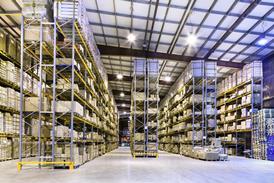Last October, we launched the world’s first large-scale, global, co-living fund with a focus on quality, convenience and Community. We aimed to provide flexible, inspiring space where people felt they belonged. We believed people wanted more from the place they called home.

A lot has happened since then to test these assumptions: our governments confined us to our homes for most of the spring and summer; investors saw a rapid acceleration of trends in retail and logistics; supply chain breakdowns in materials and labour halted development; and we have relied on technology to stay connected.
Against this unprecedented backdrop, interest in the fund has remained strong. Investors and occupiers have bought into what co-living can do to support a socially-distanced population in a work-from-home environment.
We have also just announced the fund’s latest capital investment: a £70m deal in Earlsfield, south-west London. The above is evidence that co-living, both as a flexible housing option and an investment class, is here to stay beyond the pandemic.
The challenges of the pandemic have made us appreciate the importance of being part of a strong community. While even the best of friendships have broadly been limited to Zoom calls and small, socially distanced meetings when appropriate, community interactions have kept many of us going.
Whether it was clapping for carers, neighbours helping out with food deliveries, or having a phone conversation with someone living alone, these support networks have been vital. They have reminded us of the impact of even small gestures.
The flipside of this is a loneliness epidemic that is sweeping the UK – and it impacts young people more than you might think. Research by TotalJobs reveals that 46% of UK workers have experienced loneliness in lockdown and younger workers aged 18 to 38 were most likely to be affected with 74% experiencing loneliness in this period.

The need for a support network is the reason why more than a quarter of The Collective Earlsfield scheme will be communal spaces, including a café, communal kitchen, games room and much more. We are striving to create opportunities for people to build important social bonds.
For those working from home, there are benefits to not commuting and (for some) being able to spend more time with family. But looking at the same four walls each day doesn’t make for a varied experience and some people are in cramped spaces with poor lighting and set-ups.
The Collective Earlsfield will have space for residents to work in their own rooms, but also a dedicated co-working space to help bring that richness of experience and creative contact. While a mix of working solutions is the way forward, many employees need vibrancy and contact in their daily working lives.
Our relationship with cities is changing, but they remain vital for all the social and career benefits they provide. All our fund’s assets are chosen for their proximity to, or location in, central London. Good transport links allow residents of the Earlsfield scheme to reach London Waterloo in under 30 minutes and this was a primary motivation for our investment.
All assets the fund acquires aim to have a wider impact beyond their four walls, appealing to the emerging class of socially responsible investors. With 35% affordable housing, five rooms for young people leaving social care and a plan to provide support to local charities and social groups, The Collective Earlsfield will leave an impression beyond its own footprint.
This year has been challenging for many reasons, but the thirst for good-value, high-quality, flexible housing is unquenched. Covid-19 has underlined the importance of community and the debilitating impact of isolation. Co-living provides a solution to this challenge and is an important part of our future residential mix.
Chris Cooper is chief executive of DTZ Investors





























No comments yet